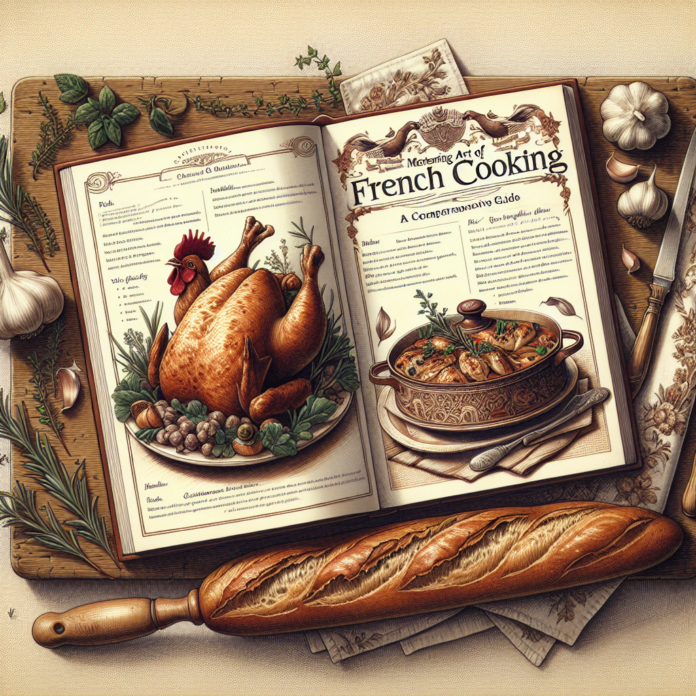French cuisine embodies richness in taste, aroma, and presentation. From buttery croissants and crusty baguettes to creamy soups and decadent desserts, every dish is a blend of innovation and tradition. Embarking on a journey to master the art of French cooking can be challenging yet rewarding, from learning the history and culture behind each dish, understanding the use of spices and herbs, to perfecting the cooking techniques unique to French gourmet. This comprehensive guide will help to demystify the world of French cuisine and empower you, whether you are a beginner or a seasoned cook, to create authentic French dishes at home.
Understanding the Basics of French Cuisine
At its core, French cooking is about respecting the quality of ingredients. The French take pride in using fresh, local and seasonal produce. Even the simplest of dishes could become extraordinary with high-quality ingredients. Another aspect of French cuisine is balance. Whether it’s a combination of flavors, textures, or even colors, every ingredient needs to coexist harmoniously with the other.
Mastering the Techniques
Classic French cooking is based on mastering certain fundamental techniques. For example, learning how to create a roux, a combination of equal parts flour and fat, is crucial in making sauces, stews and soups. Similarly, perfecting techniques like sautéing, roasting, braising, poaching, and baking are essential in ensuring the success of many French recipes. Keep in mind that patience is key in the process, as many of these techniques require time to achieve the desired results.
Embracing the Culture
Beyond the techniques and recipes, French cooking is also about embracing the culture. In France, meals are not just about sustenance, they are an experience. Enjoying a meal can take hours, with a series of courses designed to tantalize and satisfy the palate. Take the time to savor and appreciate each bite, and don’t forget to pair your dishes with some excellent French wine.
Exploring Regional Specialties
French cooking is not just about croissants, baguettes, and foie gras. There’s a diverse range of regional specialties waiting to be explored. From the seafood-rich dishes of Provence, the hearty cuisine of the Alps, the cider and apple dishes from Normandy, to the wine-based dishes from Burgundy. Each region has its own distinctive flavors and techniques, which add to the richness and diversity of French cuisine.
Reference Books and Courses
Learning from experts is an important part of mastering any art, including French cooking. Consider investing in cookbooks like “Mastering the Art of French Cooking” by Julia Child and Simone Beck, to gain a deep understanding of French cuisine and it’s technique. Or you can opt for online courses which provide step by step instructions to help you sharpen your skills.
Mastering the art of French cooking can be an enlightening and fulfilling journey. It’s not just about the food, but the overall experience and connection to the culture and history of France. With patience, practice, and the right resources, you can bring the elegance, sophistication, and sumptuous flavors of French cuisine right into your home.
Frequently Asked Questions
1. Is French cooking difficult to learn?
Like any skill, learning French cooking requires patience and practice. However, by understanding the basics, learning the techniques and respecting the ingredients, one can master the art.
2. Why is French cuisine so famous?
French cuisine is renowned for its creativity, variety, and above all, its emphasis on high quality, fresh, seasonal ingredients. It’s also known for its finesse and attention to detail in preparation and presentation.
3. What are some essential ingredients in French cooking?
Butter, cream, wine, and fresh herbs are some key ingredients in French cuisine. However, the emphasis is always on fresh, locally sourced produce.

